Audio available in app
Phantom sensations are a window into the workings of the brain from "summary" of Phantoms in the Brain by V. S. Ramachandran
In the realm of neuroscience, phantom sensations provide a unique opportunity to delve into the inner workings of the brain. These sensations, which occur in amputees who feel the presence of their missing limb, offer a glimpse into the mysterious ways in which the brain processes sensory information. By studying these phantom sensations, researchers can uncover the complex neural mechanisms that underlie our perception of the world. Through careful observation and experimentation, scientists have been able to decipher the code of the brain, revealing its intricate network of connections and pathways. Phantom sensations serve as a keyhole through which we can peer into the brain's inner workings, shedding light on the mechanisms that govern our sensory experiences. One of the most fascinating aspects of phantom sensations is the phenomenon of referred sensations. In some cases, an amputee may feel a sensation in their missing limb when a different part of their body is touched. This curious phenomenon hints at the brain's ability to rewire itself in response to changes in sensory input, showcasing its remarkable plasticity. Furthermore, the study of phantom sensations has led to groundbreaking insights into the nature of pain. By examining how amputees experience phantom limb pain, researchers have been able to uncover the underlying mechanisms that give rise to this phenomenon. This has not only deepened our understanding of pain perception but has also paved the way for new treatments and therapies for chronic pain conditions.- Phantom sensations serve as a doorway to the enigmatic world of the brain, allowing us to unravel its mysteries one sensation at a time. Through continued research and exploration, we can hope to unlock the secrets of the brain and gain a deeper understanding of what it means to be human.


